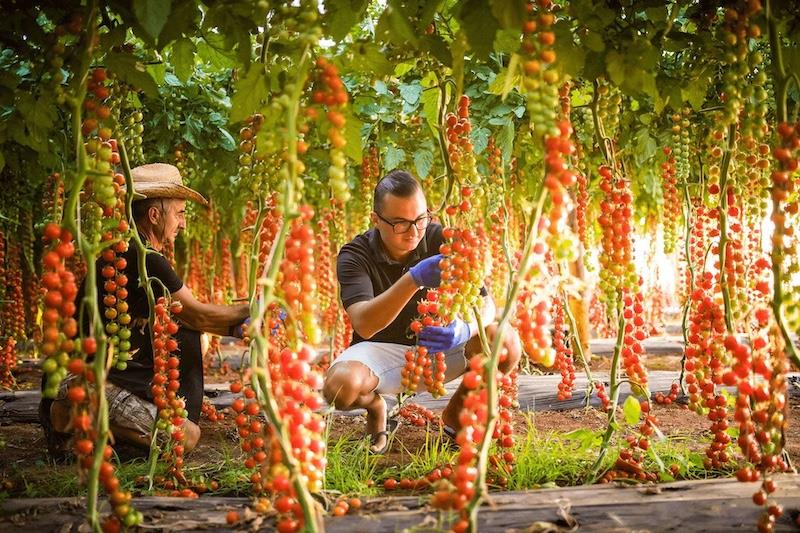
Top 20 Vertical Farming Companies In 2025: Who's Thriving, Who's Gone, And What's Next
May 1, 2025 by Mark Allinson
Vertical farming was once hailed as the future of agriculture – a way to grow food in cities, with no pesticides, less water, and zero food miles.
Investors poured hundreds of millions of dollars into high-tech startups promising to revolutionize farming. Yet today, many of those once-promising ventures have filed for bankruptcy or quietly disappeared.
Still, the sector isn't dead. Some companies have survived – even thrived – by refining their technology, downsizing their ambitions, or pivoting to B2B models.
This article updates our 2019 list by removing the companies that have failed and highlighting the 20 most active and notable vertical farming companies in 2025.
Top 20 vertical farming companies 2025 1. Bowery Farming (USA)A leader in the U.S. vertical farming space, Bowery uses AI, robotics, and controlled environments to grow pesticide-free greens. The company continues to expand its operations and product line.
2. Oishii (USA)Known for its premium strawberries, Oishii combines vertical farming with Japanese horticultural techniques to grow some of the most expensive berries in the world - and sells them successfully.
3. Eden Green Technology (USA)Based in Texas, Eden Green operates large-scale greenhouse-vertical hybrid facilities and has been steadily expanding into retail and institutional supply chains.
4. Intelligent Growth Solutions – IGS (UK)IGS produces modular vertical farming towers optimized with sensors, robotics, and LED lighting. It recently expanded into the Middle East and Asia through international partnerships.
5. Stacked Farm (Australia)Fully automated and highly scalable, Stacked Farm is Australia's most prominent vertical farming company and is currently exploring expansion into the U.S. market.
6. Jones Food Company (UK)One of Europe's largest vertical farms, Jones Food Company produces herbs and leafy greens for UK retailers. It emphasizes low energy usage and clean, chemical-free produce.
7. GrowUp Farms (UK)GrowUp's farms integrate renewable energy, recirculated water systems, and vertical growing technologies. The company recently opened a large-scale commercial farm for salads.
8. Freight Farms (USA)Freight Farms builds shipping container-based farms and sells them to schools, entrepreneurs, and nonprofits. It targets small-scale growers and local food systems.
9. Urban Crop Solutions (Belgium)This company focuses on turnkey vertical farm solutions and research services, catering to companies and institutions looking to grow crops indoors.
10. AgroUrbana (Chile)Latin America's first vertical farm, AgroUrbana supplies local retailers in Santiago with fresh greens while promoting food sovereignty in urban areas.
11. GoodLeaf Farms (Canada)GoodLeaf operates multiple farms across Canada, growing microgreens and leafy vegetables year-round. It's backed by McCain Foods and focuses on domestic distribution.
12. Farm (USA)This boutique vertical farm in New York grows high-end microgreens and herbs for restaurants and subscribers, operating on a hyper-local delivery model.
13. Gotham Greens (USA)With greenhouse-style farms in several U.S. cities, Gotham Greens blends vertical and horizontal growing methods and distributes via major supermarkets.
14. Sky Greens (Singapore)Sky Greens pioneered a rotating vertical growing tower that minimizes land use. It continues to supply local markets and is used as a model in other Asian cities.
15. AeroFarms (USA)Although it filed for bankruptcy in 2023, AeroFarms restructured and refocused operations at a single site, continuing to develop aeroponic systems for leafy greens.
16. Kalera (USA)After major downsizing, Kalera still operates limited facilities. Its technology platform remains relevant in niche food service and hospitality markets.
17. Infarm (Germany)Once a global leader, Infarm withdrew from international markets but continues to supply a small number of retail locations in Europe with in-store vertical growing units.
18. CropOne Holdings (USA)In partnership with Emirates Flight Catering, CropOne runs one of the world's largest vertical farms in Dubai, supplying greens to the aviation and hospitality industries.
19. Vertical Harvest (USA)Based in Wyoming, this company combines vertical farming with a social mission, employing people with disabilities and expanding into new cities.
20. YesHealth Group (Taiwan/Global)A relatively quiet but steady player, YesHealth builds and operates vertical farms in Asia and Europe, often as a white-label or infrastructure partner.
Companies that have closed or filed for bankruptcy-
AppHarvest (USA) – Filed for Chapter 11 bankruptcy in 2023 and liquidated.
Plenty (USA) – Shut down in 2025 despite raising hundreds of millions.
Fifth Season (USA) – Ceased operations due to lack of profitability.
Iron Ox (USA) – Abandoned its autonomous farming systems and closed.
Upward Farms (USA) – Folded in 2023 citing rising costs.
Agricool (France) – Entered bankruptcy after failing to scale.
Local Roots (USA) – Quietly disappeared from the market.
80 Acres Farms (USA) – Faced layoffs and major downsizing; status uncertain.
Despite the setbacks, the vertical farming market is still expected to grow. Analysts project the global market to reach more than $20 billion by 2029, driven by:
-
Urban food security needs
Energy-efficient LED tech and automation
Rising demand for local, pesticide-free produce
Smart city integration and climate change resilience
However, the road ahead remains steep. High electricity costs, logistics, and capex continue to weigh on profitability. Some companies are pivoting from trying to operate farms to simply selling the tech.
The new generation of vertical farming companies is leaner, more tech-focused, and more cautious. They've learned that growing food is hard – but not impossible – when you're also trying to reinvent the entire supply chain.
Legal Disclaimer:
MENAFN provides the
information “as is” without warranty of any kind. We do not accept
any responsibility or liability for the accuracy, content, images,
videos, licenses, completeness, legality, or reliability of the information
contained in this article. If you have any complaints or copyright
issues related to this article, kindly contact the provider above.

















Comments
No comment